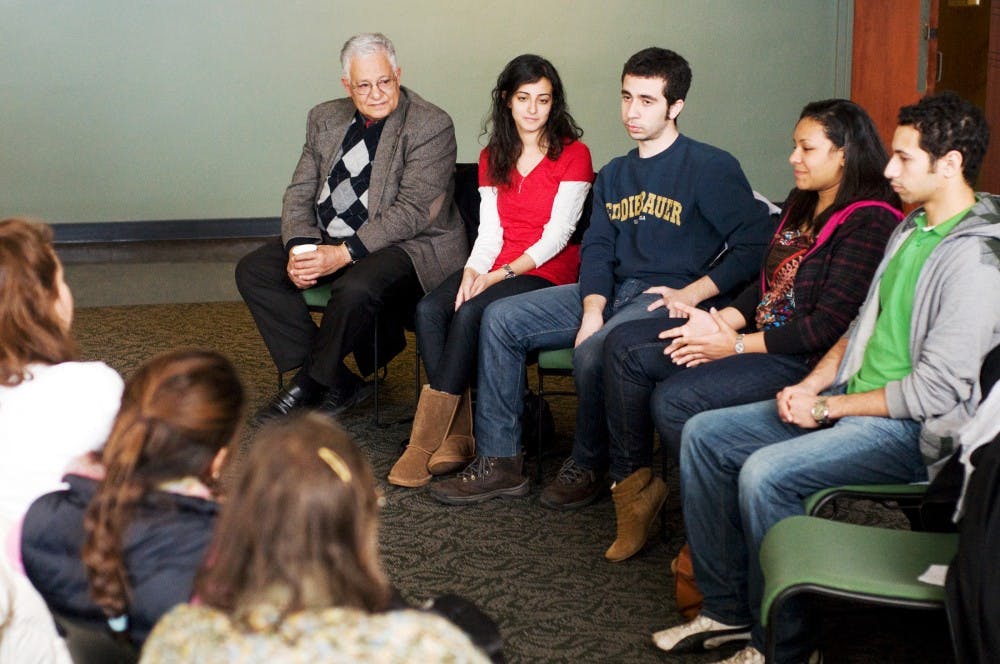Wafa Hassan’s students in the Arabic Language Instruction Flagship program have been analyzing news coverage of the recent Egyptian government revolution as part of their daily classes.
When she heard from a colleague at the University of Chicago that there were four exchange students from Egypt studying at his university, she realized the opportunity it could bring her students to talk to students who lived through protests firsthand.
“It brings real life exposure from the mouth of the same people who lived it,” said Hassan, the outreach coordinator for the Arabic Language Instruction Flagship program. “They’re very similar to the youth of MSU — they have the same dreams, the same future.”
James Madison College and the Arabic Language Instruction Flagship program hosted an open panel discussion with four Egyptian exchange students from the University of Chicago in Case Hall Friday. About 20 students and professors attended.
Hassan said the students also hosted a panel with students in the Arabic Language Instruction Flagship program earlier in the day conducted solely in Arabic.
The flagship program aims to produce students who are fluent enough in Arabic to use it in their careers and requires students to study for a year abroad in Alexandria, Egypt, during their time at MSU, she said.
Mohamed Salem, a student from Cairo University, said he was in Tahrir Square almost every day of the protests and was amazed to see the unity felt by Egyptian people from all social classes and religions.
“In a square full of hundreds of thousands, they were giving away blankets, foods and (taking) turns doing prayers to protect each other,” Salem said. “It was truly fascinating to see the Egyptian people moving together in one direction.”
Egypt has been through government revolutions in the past, but the key difference about the recent uprising against former president Hosni Mubarak was that it was led by the youth and the Egyptian people instead of the army, said Muhammed Eissa, an Arabic culture and language specialist from the University of Chicago who moderated the discussion.
A military council currently rules the country and a committee is working to amend the Egyptian constitution.
Noha Siam, also a student at Cairo University, went to Tahrir Square during one day of the protests. The images of the square shown on TV made her nervous, but when she was actually there she was impressed by the people’s peacefulness.
“It was a kind of spirit that I thought we didn’t have or we lost over time,” Siam said. “Even if Mubarak didn’t leave, we gained trust in ourselves as youth.”
The Egyptians also were trying to break the misconception that Egypt was trying to import democracy from the U.S, said Ahmed Ezz, an Egyptian university student who went to the square before the protest.
“The most important message the Egyptians wanted to convey is that democracy is not something you go to the supermarket and buy,” Ezz said. “We are the ones that say we want democracy — this is our decision and our country.”
Linguistics freshman Sonja Trierweiler came to the panel after getting an e-mail from her Arabic 102 professor, she said. She plans on studying abroad in Egypt some day and said she watched a lot of coverage of the Egyptian revolutions on TV.
“It’s really uplifting that youth could have such an impact,” Trierweiler said.
Support student media!
Please consider donating to The State News and help fund the future of journalism.
Discussion
Share and discuss “Panel discusses Egyptian experiences” on social media.







